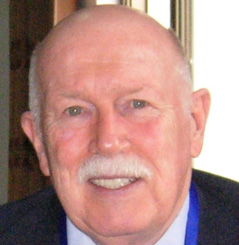
French Revolution in Hungarian Journal
(Image by (From Wikimedia) Demeter Görög, Author: Demeter Görög) Details Source DMCA
Recently we presented an editorial saying that the United States Constitution absolutely forbids the States and the United States, by any means, of creating or supporting extreme disparities in wealth and power that amount to creating a plutocracy, an aristocracy or modern nobility: "THERE IS LEGAL PRECEDENT FOR A MORE EQUITABLE SOCIETY" This is covered in great detail in our recent book, The Cornerstone Brief and Secrets of the Forgotten American Revolution. We are under a constitutional mandate to create a more equitable society.
Today, we find this is the condition already existing. Feudalism, oligarchies, plutocracies favor those who control the means of production, the basic necessities of life and they have in the past controlled the profit taken from the market. Control of this has given them an unequal opportunity to control the lives, homes and health of the rest of the population.
The disparities today are not only in what you can buy and own, what you can eat and live in, the clothes you wear, but even in the health and length of life you and your children. Unless addressed now, that control will become more intolerable. The disparities of life span between the rich and the poor are growing. Economists at the Brookings Institution comparing men born in 1920, found that there was a six-year difference in life expectancy between the top 10 percent of earners and the bottom 10 percent. These recent investigations found that in men born in 1950, the spread had more than doubled, to 14 years and that for women the difference grew from 4.7 years to 13 years,. Those are pitchfork figures. [New York Times Disparity in Life Spans of the Rich and the Poor Is Growing, By Sabrina Tavernise February 12, 2016]]
[The pitchforks ARE coming" - A billionaire warns his fellow Oligarchs what is coming down the pipe by Nick Hanauer, Multi millionaire) see also. In June 2014 Hanauer wrote an op-ed for Politico magazine in which he foresaw pitchforks coming for his "fellow .01%ers"if they did not address the issue of increasing wealth inequality.
There are some political ways to resolve the problem, without bloodshed, by action in the market and on passages of wealth through inheritance, gifts and trusts and there are ways of using taxes to accomplish this. It was proven in the last century, especially around and following World War II, that leveling of wealth could be accomplished through various forms of taxation. But today, as many very wealthy already show, this can be easily avoided.
We could certainly level or reduce disparities at death as no one has the right to receive enormous fortunes through gifting, probate and trust distributions except with the support of the State and the National. Corporations don't die, and trusts can seemingly go on and on, so death dues are only partially useful. Also we do not address the day to day needs of all members of the society for sustainable, subsistence incomes. We could do it in life through expropriation. But then we have the problem of compensation for taking of property under the Federal Constitution's fifth and fourteenth amendments. This results in transfers of property but possibly no or only partial transfers of wealth. The states could try to do it through property and sales taxes and the Federal Government could consider Value Added Taxes on property transfers. Today taxes have proven politically difficult to levy and recover and therefore, alone, less likely to level the economic playing fields.
From 2008 to 2012, twenty six of the top corporations in the United States, such as Boeing, General Electric and Verizon, paid no income tax while reporting profits to their shareholders. Citizens for Tax Justice (CTJ), reported in a focused study on 288 companies in the Fortune 500, that all registered consistent profit every year from 2008 to 2012. These profitable corporations only paid an "effective federal income tax rate of just 19.4 percent over the five-year period -- far less than the statutory 35 percent tax rate," A third of them paid less than 10%. Yet these same 288 companies received $364 billion dollars in tax subsidies over the same period. Anyone wishing to examine the situation must concede the tax system is not fair. CTJ reports that: "Five companies -- Wells Fargo, AT&T, IBM, General Electric, and Verizon -- enjoyed over $77 billion in tax breaks during this five-year period." Federal income taxes for the 30 companies in 2008 - 2011, despite $205 billion in pretax U.S. profits, the corporate taxes remained negative.
Today, enormous wealth can be created practically over night. Even very modest profits, when spread over hundreds of millions and billions of customers, quickly amass fortunes. Between the accumulated wealth in more and more limited hands and the abilities this dynamic society has to create new wealth, we should have plenty to cover our basic needs, probably with some comfort to all. It will depend on how we chose to share it. This can be cause for Pitchforks and Revolution. That will be the subject of the rest of this series.





